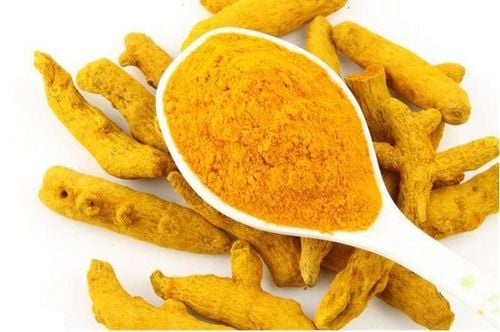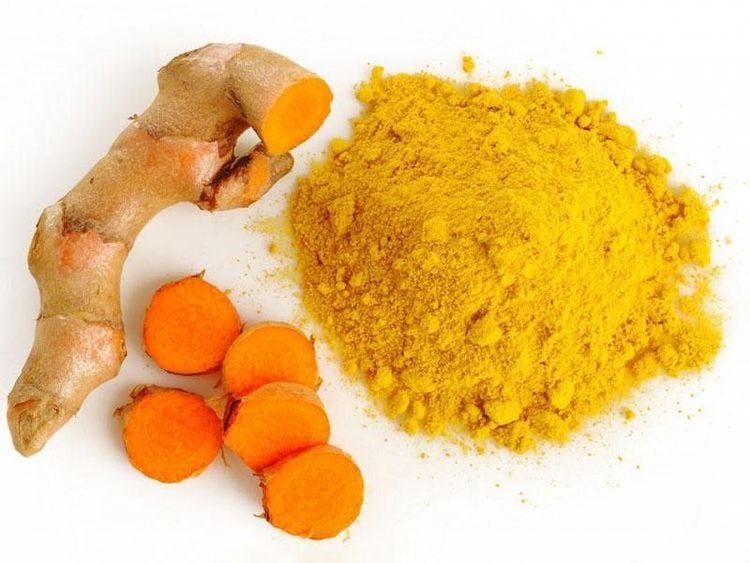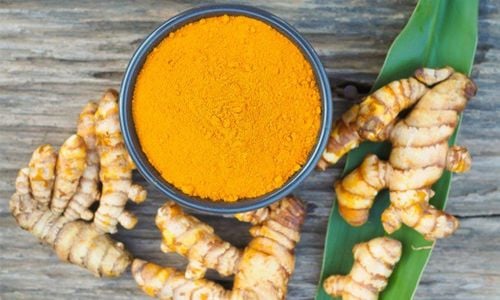Turmeric, often referred to as the 'golden spice,' is a common ingredient in Asian cuisine. It possesses antioxidant, anti-inflammatory, and weight loss properties. Certain compounds within turmeric, most notably curcumin, can support weight management.
1. Turmeric and Weight Loss
In fact, In vitro studies have shown that curcumin can inhibit inflammatory markers, which are often elevated in overweight or obese individuals. Animal studies suggest that this compound can promote weight loss, reduce fat tissue growth, curb weight gain, and increase insulin sensitivity.
A 30-day study involving 44 individuals who previously struggled with weight loss found that supplementing twice daily with 800 mg of curcumin and 8 mg of piperine resulted in significant reductions in body weight, body mass index (BMI), and waist and hip circumference.
Piperine, a compound found in black pepper, can enhance the absorption of curcumin. Moreover, a review of 21 studies involving over 1,600 people linked curcumin intake to reductions in weight, BMI, and waist circumference. It also noted increases in adiponectin, a hormone that helps regulate metabolism.
2. Other Benefits of Turmeric
- Reducing Depression: Certain compounds in turmeric can support mental health. The most famous of these is curcumin. Scientists are excited about curcumin's potential to alleviate depression and help antidepressants work better.

- Reducing the Risk of Type 2 Diabetes: Because curcumin can help fight inflammation and keep blood sugar levels steady, it could be a useful tool 1 for preventing or managing type 2 diabetes. One study followed 240 adults with diabetes and found that supplementing with curcumin for over nine months reduced the rate of diabetes. Research is ongoing, but much of the research so far has been on animals, not humans.
- Fighting Viruses: Curcumin may help you fight a variety of viruses, including herpes and the flu. (But most of the research on this has been done in a lab, not on people.) Remember that turmeric is only about 3% curcumin and your body doesn't absorb curcumin well, so the occasional tea isn't going to be a cure-all.
- Reducing Premenstrual Syndrome: A recent study followed women for three consecutive menstrual cycles and found that supplementing with curcumin reduced PMS symptoms. A study on the muscles of guinea pigs and rats suggests that turmeric may also provide relief from menstrual cramps.
- Lowering Cholesterol: Some studies have found that turmeric can reduce "bad" LDL cholesterol, while other studies have concluded that the spice has no effect. Scientists continue to look into turmeric's heart-protective potential. One small study suggests turmeric may help avoid heart attacks in people who have had surgery.
- Reducing Cancer Risk: In lab and animal studies, turmeric has prevented the growth of tumor cells, helped detoxifying enzymes work better and more. However, what these studies can't tell us is what would happen in a human body when a person eats turmeric. Plus, there's a possibility that turmeric could interfere with some types of chemotherapy drugs.

Irritable Bowel Syndrome: A pilot study of 207 adults and another using rats found that turmeric may help improve irritable bowel symptoms like abdominal pain. Turmeric is also being studied for treating conditions like Crohn's disease and ulcerative colitis.
Reducing Headaches: Ginger is a popular natural remedy for headaches, so it's no surprise that turmeric is also recommended as a headache treatment, especially for migraines.
3. Safety and Side Effects of Turmeric
Generally, turmeric and curcumin are considered safe. Short-term studies show that using up to 8 grams of curcumin daily poses little risk to health. However, some people who take large doses of this compound may experience side effects such as allergic reactions, nausea, vomiting, stomach pain, constipation, skin rash, or diarrhea. Additionally, people with the following conditions should avoid turmeric supplements:
- Bleeding disorders: Turmeric can interfere with blood clotting, which can cause problems for people with bleeding disorders.
- Diabetes: These supplements may interact with diabetes medications and cause blood sugar to drop too low.
- Iron deficiency: Turmeric can interfere with the absorption of iron.
- Kidney stones: This spice is high in oxalates, which are compounds that can bind with calcium and contribute to the formation of kidney stones.
Pregnant women should avoid turmeric supplements.Talk to your doctor before using turmeric supplements regularly if you have any medical conditions, including gallbladder or kidney disease, bleeding disorders, diabetes, or immune system problems. Since turmeric can increase bleeding, stop using it at least two weeks before surgery.
Additionally, some turmeric products may contain undisclosed additives, so it's best to choose a supplement that has been clearly certified. Curcumin may also interact with many drugs, including blood thinners, antibiotics, heart medications, antihistamines, and chemotherapy drugs.

4. How to Use Turmeric
Turmeric is available in various forms, but the most common use is as a cooking spice. It's also found in drinks like turmeric ginger tea and golden milk, made by heating milk, turmeric, ginger, black pepper, and cinnamon.
In Indian cuisine, turmeric is often consumed in tea with black pepper and other ingredients such as honey, ginger, olive oil, and coconut oil.
Most human studies show that the health benefits of turmeric are only seen at high doses. That's because turmeric is used in small amounts as a spice. Moreover, this spice only contains 8% curcumin, while supplements pack up to 95% curcumin.
You can also choose a supplement that includes black pepper, as its compounds significantly improve the absorption of curcumin.
However, you should avoid high doses of turmeric for longer than 2-3 months. While turmeric can aid in weight loss, this potent herb offers many other benefits, such as reducing the risk of brain disease and heart disease.
Turmeric is a popular spice linked to many benefits, including heart and brain health. Although it shows promise for weight loss, more extensive research is needed before turmeric and its active compound curcumin can be widely recommended as safe, but you should consult a healthcare professional if you have any concerns.
If there is a need for consultation and examination at the Hospitals of the National Health System, please book an appointment on the website to be served.
Articles refer to sources: healthline.com, webmd.com
To arrange an appointment, please call HOTLINE or make your reservation directly HERE. You may also download the MyVinmec app to schedule appointments faster and manage your reservations more conveniently.













